How High Will You Go? Five Questions For The ECB
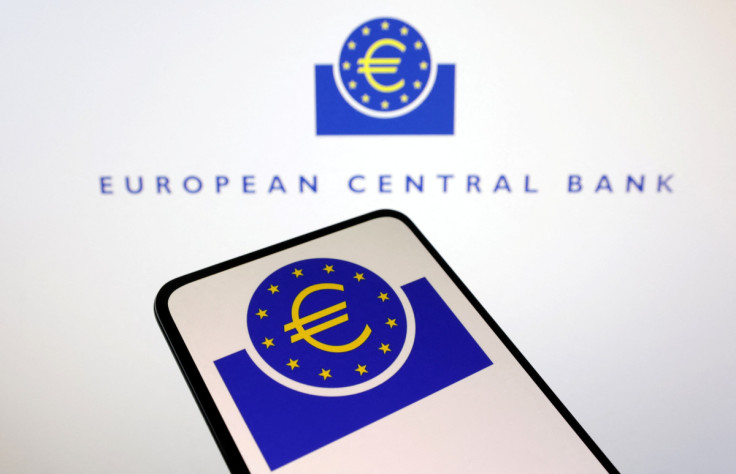
The European Central Bank looks set to deliver another hefty interest rate hike on Thursday, putting the market focus onto how far it is willing to go to fight inflation.
A surprise surge in underlying inflation in February has left policymakers fretting that price pressures could prove persistent.
Markets have ramped up bets on further rate increases after the ECB has already tightened monetary policy by 3 percentage points since July.
"With the recent repricing in financial markets of the ECB's next steps, the heat is on," Carsten Brzeski, global head of macro at ING, said.
Here are five questions for markets.
1/ What will the ECB do?
ECB President Christine Lagarde reckons a 50 basis points (bps) rate hike "is very, very likely".
The ECB is expected to sound hawkish, suggesting that uncertainty on inflation and growth justifies more tightening, to prevent the kind of easing in financial conditions triggered by its message in February.
"Everybody expects the ECB to raise rates by 50 bps, and of course, an unexpected 75 bps rise will affect markets at least in the short-term," Francis Yared, global head of rates research at Deutsche Bank, said.
"However, market and economic indicators keep telling us that the policy path investors priced in is not enough to tame inflation, so the ECB will have to do more," he added.
The race to raise rates
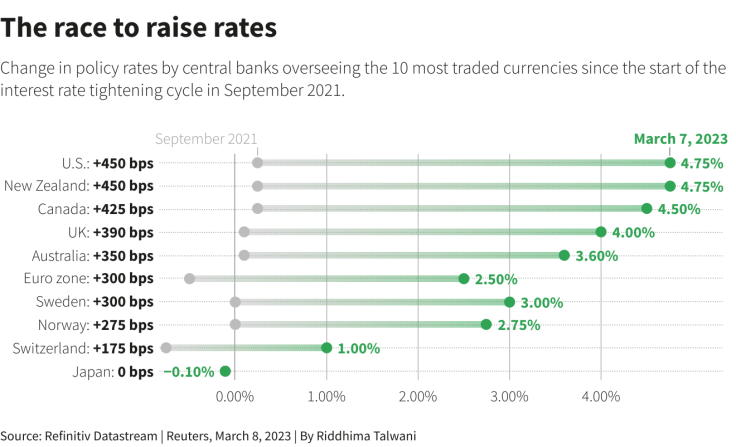
2/ What happens after March?
Markets price another 50 bps increase in May, so ECB signalling is key.
It could pre-commit to another big hike, stress a meeting-by-meeting approach, or flag several smaller increases.
Hawks have urged bigger moves. Austria's central bank chief Robert Holzmann wants half-point moves at each of the next four meetings. Chief economist Philip Lane says "calibration" of further increases depends on new forecasts and data.
The ECB is meanwhile expected to stick to plans for shrinking its balance sheet by 15 billion euros ($15.89 billion) a month through June.
"The ECB is prioritising getting policy rates as high as needed and nothing else is as important," Pictet Wealth Management's head of macroeconomic research Frederik Ducrozet, said.
Way above target
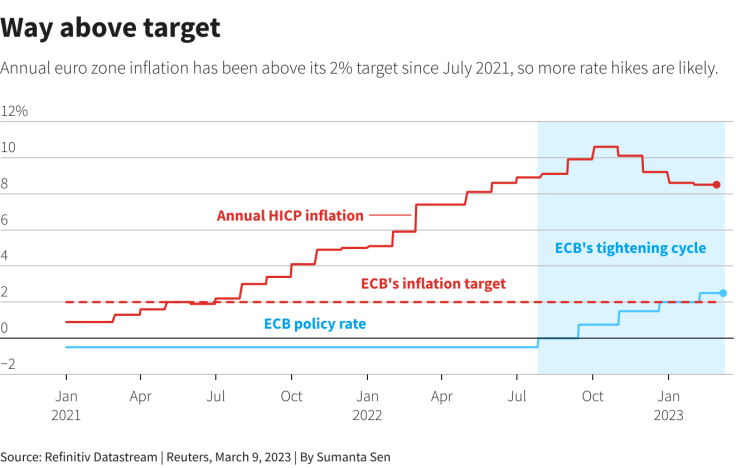
3/ Where will rates peak?
Market pricing suggests rates could rise to 4% by the end of the year. U.S. rate rise expectations have also shot up.
Many banks expect rates to peak there, implying a further 150 bps of hikes.
Germany's two-year bond yield rose above 3% in late February for the first time since 2008, another sign that traders are positioned for sharply higher rates.
"I suspect that market pricing is becoming a bit too aggressive, as by the summer anaemic growth and moderating inflation should be very evident," Guy Miller, chief market strategist at Zurich Insurance Group, said.
Hikes forecast throughout the year
4/ Does the ECB think inflation is stuck?
Inflation stripping out volatile food, energy, alcohol and tobacco prices touched a record 5.6% last month and some policymakers fear that the increase is the result of a surge in wages in the services sector, which makes price growth harder to break.
Lagarde believes underlying inflation will stay high near-term and could be pressed on that time horizon.
Analysts say the cumulative impact of rate hikes has yet to be felt and will help to lower inflation.
ECB's core inflation headache
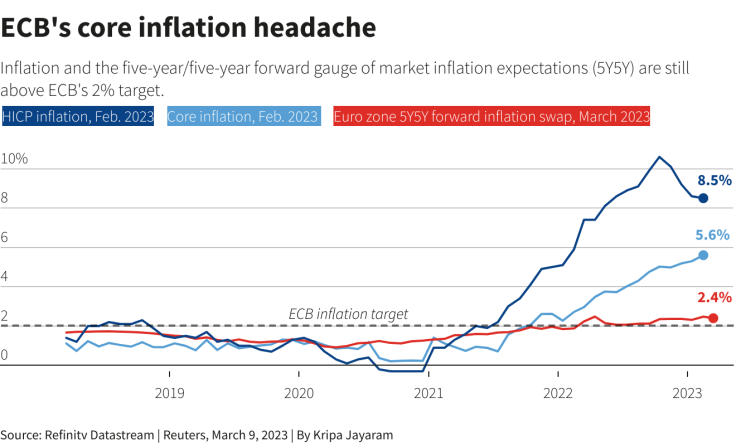
5/ What about latest ECB economic projections?
Signs of economic resilience suggest ECB growth forecasts, also out on Thursday, could be revised upwards for 2023. Euro area business activity growth was at a nine-month high in February.
Falling energy prices and a stronger euro, up around 6% in trade-weighted terms from August lows, suggest headline inflation forecasts could be revised lower.
Strong underlying price pressures mean longer-term forecasts will be watched closely.
"In their forecasts, headline inflation should be lower, as energy prices fall, but core inflation is staying very stubbornly high," Eoin Walsh, portfolio manager at TwentyFour Asset Management, said, adding: "They will certainly be careful not to sound too dovish."
ECB to release economic projections in March
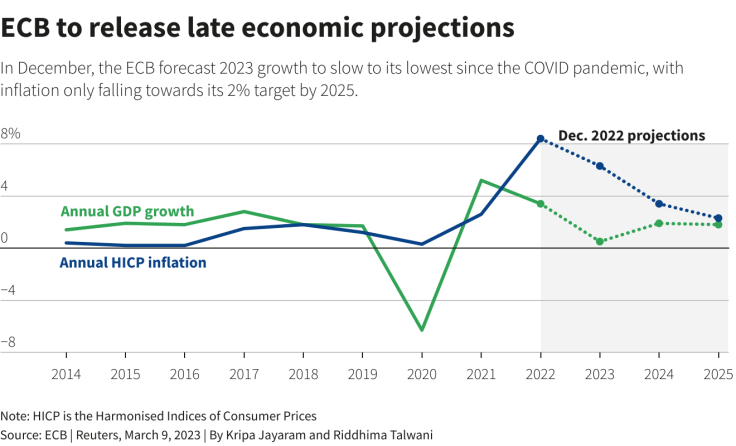
($1 = 0.9442 euros)
© Copyright Thomson Reuters 2024. All rights reserved.




















